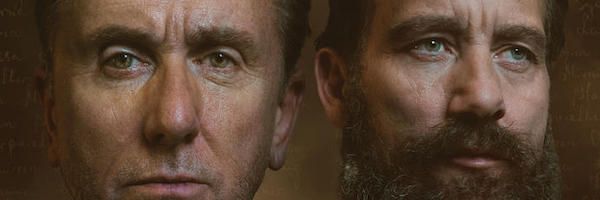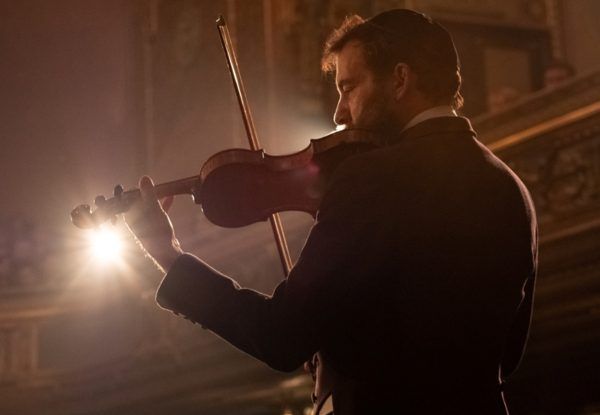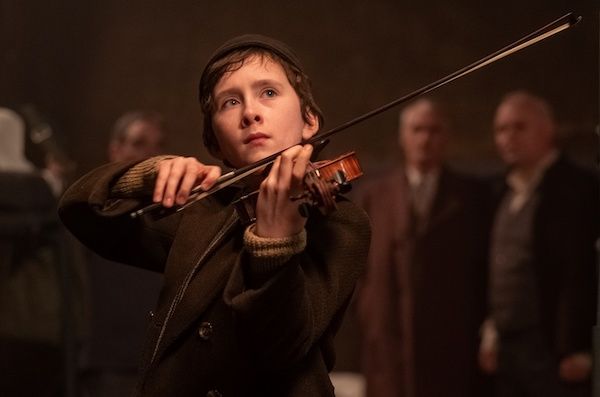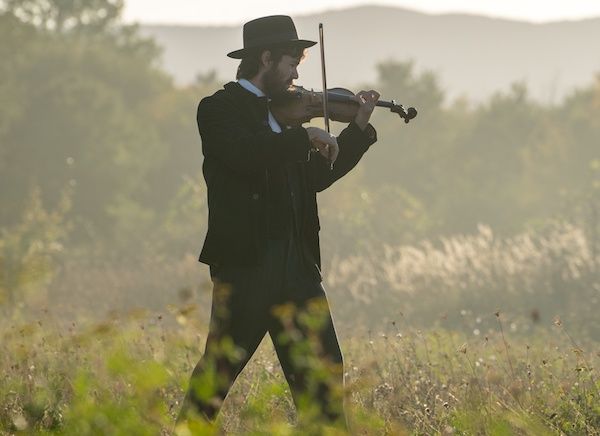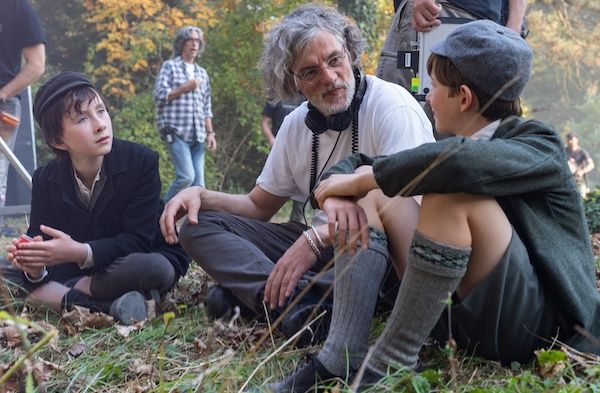From director François Girard, the drama The Song of Names follows Martin Simmonds (Tim Roth), a man who has been haunted by the mysterious disappearance of the best friend he grew up with, virtuoso violinist Dovidl Rapaport (Clive Owen). Having vanished without a trace, just before the debut concert that would have launched his brilliant career, left many unanswered questions, and 35 years later, after learning that Dovidl may still be alive, martin sets out on an obsessive search to find those answers.
During this 1-on-1 phone interview with Collider, Owen talks about the extensive research and work he did to fully embody his character, the challenges of playing a violin virtuoso, the experience he had working with a filmmaker like Girard, and much more. Owen also opens up other upcoming projects including playing Bill Clinton for the next chapter of FX’s American Crime Story and the Apple TV+/Stephen King series Lisey’s Story, in which the author has written every episode.
Collider: This is such a fascinating story, and I would imagine that it’s rare to get a script like this. When this came your way, what was your reaction to the story and character, and what made you want to be a part of this?
CLIVE OWEN: I was really, really taken with the script. I found it very moving. I thought it was a beautiful story, beautifully written. I was surprised that François [Girard, the director] was coming to me, so I had to ask him why. I was attached to the film for quite a while before anybody else, and I didn’t understand why he hadn’t gone out there and cast the other part because that’s the character that carries the film, really. But he just kept saying how important it was that, after the journey of the film, that it was the right person, when you get to the end of the movie. So, he talked to me and told me why he wanted me to do it. I loved the script. It feels like an important movie. To be honest with you, because I’m only at the end of the movie, I said, “Listen, it’s an awful lot of work.” I had to do a lot of research into playing [an] Orthodox Jewish [person]. I also had to put a lot of work into the violin practice. But I was so taken with the script and taken with him that I did it, and I was very happy that I did.
What did your Girard tell you as far as why he wanted you involved?
OWEN: I can’t really remember. I was just confused. I said, “How come you’re not going out looking for the main part of the film? Why are you coming to me for this part first?" It was just about how he wanted a particular kind of actor because it was super important for him that the whole journey of the movie ends with this guy, and he’s gotta be the right thing. He just thought I was the right guy and would be able to do what he wanted.
Your character is comprised of three actors playing him, at different ages. Was it challenging to measure your performance, so that all three performances would work together?
OWEN: There was certainly a continuity, in terms of violin playing. did lots of lessons with the teenage version that Jonah [Hauer-King] played, and we would work together with a violin soloist, who spent a lot of time with us, teaching goes. We made sure that had a similarity. Its’ a beautiful, sensitive film, but there’s an arrogance to him, as well, that we all had to carry it, which is to do with being so talented, I suppose. There were definitely constant discussions. That was a big thing for François. Unusually, the actor who played the really young one (Luke Doyle), I have pictures of me, at that age, and he’s pretty close. I showed François some pictures after he cast him because I looked quite similar, at that age. But when I saw the film, the thing I was most impressed with was the knitting together of those three different ages. It’s really hard to do that, and do that well, without it being jarring. I thought the narrative of the film was very beautifully done. He made it look very easy, which it isn’t.
The violin has always struck me as one of the most difficult instruments to play. What are the challenges of not only feeling comfortable with an instrument like that, but convincingly coming across as a virtuoso?
OWEN: My first day of filming was walking into the Liszt Academy in Budapest, with a full audience and full orchestra. It was world-class and pretty daunting. I don’t think I’ve ever begun a film, under quite so much pressure. I put a lot of time in with a wonderful coach. What became clear to me, getting near to actually shooting, was that, with all of the work we were doing, really the most important thing is that the tableau was right and that you could shoot me from the back of the auditorium, and if you weren’t seeing the intricate finger work, but you were just seeing the shape and feel of the violin, that was the key thing. So, I pushed it towards making sure we were concentrating on that, rather than the final details.
What was it like to actually hear what that final piece of music would be like?
OWEN: It was stunning. It’s just a stunning piece of music. François is a hugely musical guy. Because the stuff before the final piece has to be brilliant, it has to crescendo with this piece, at the end. So, finding the right kind of music before that was important. And then, when I heard, for the first time, what Howard Shore had put together for the final piece, I just thought it was so beautiful.
One of the things in this film that’s fun is that your introduction into the film is really essentially you getting punched in the face several times by Tim Roth. What’s it like to shoot a moment like that?
OWEN: It was important because the film has been leading up to that character being full of frustration. It’s a powerful moment. Really, I wanted to do the film because I loved the story and the subject matter, it was a beautiful script, and I loved François, but it was also because that scene with Tim, at the end, was so well-written, so fueled and so charged, that I wanted to do it for that scene, as well.
When you work with a director like François Girard, who has directed opera, theater, Cirque du Soleil, and all of these other things, aside from just film, does that change the cinematic language, at all? Does, does the communication feel different?
OWEN: Well, he’s just hugely talented and super smart. I got on with François pretty brilliantly, actually. We’re already talking about a number of other things to do together because I had such a great time with him and he’s such a talent. This film is a really challenging film for a director to pull off. But also, musically, it’s obviously hugely important, and there aren’t many directors who could be so aware and on top of that element of the film. I just don’t think there are many directors, apart from him, that could have been so on top of that aspect of the movie.
You’re also going to be playing Bill Clinton in American Crime Story. Did you need some convincing to play someone like that, who is still very much a public figure?
OWEN: Yes. It’s daunting. I got drawn into it because I went back and looked at a lot of stuff from that time. I just think it’s fascinating to watch someone like him navigate his way through an extraordinary situation like that. It will be hugely challenging. There’s something terrifying about it, but what you do it is go in there and test yourself. So, I didn’t say yes immediately.
Is it one of those situations where, even though you’ve been in this business a long time, it’s still exciting to have a project like that come your way that can terrify you?
OWEN: Every job terrifies me. Playing a world-class violinist terrified me. Fear is a good motivator. If you look throughout my career, I’ve often taken on things where the possibility of failing is quite high. I’ve never been one of those actors who’s found something he wants to just repeat and hone and perfect. I’d much rather keep throwing myself into situations where I feel out of my depth enough to work hard to pull it off.
You’re also doing a Stephen King series, Lisey’s Story. What interested you in that project and the character that you’ll be playing?
OWEN: Well, he’s written all eight hours of it, and it’s pretty stunning writing. It’s a pretty special piece of writing, it’s got a wonderful director (Pablo Larraín), and it’s with Julianne Moore, who’s not only one of the best actresses out there, but just a lovely person. It was very easy to say.
His books are so visual. Do his scripts come across the same way?
OWEN: Yes, they’re very visual. They’re beautifully written. The clarity of intent is really sophisticated. It feels like a very, very special project that’s hugely layered and will be visually very exciting, as well.
The Song of Names is now playing in theaters.

